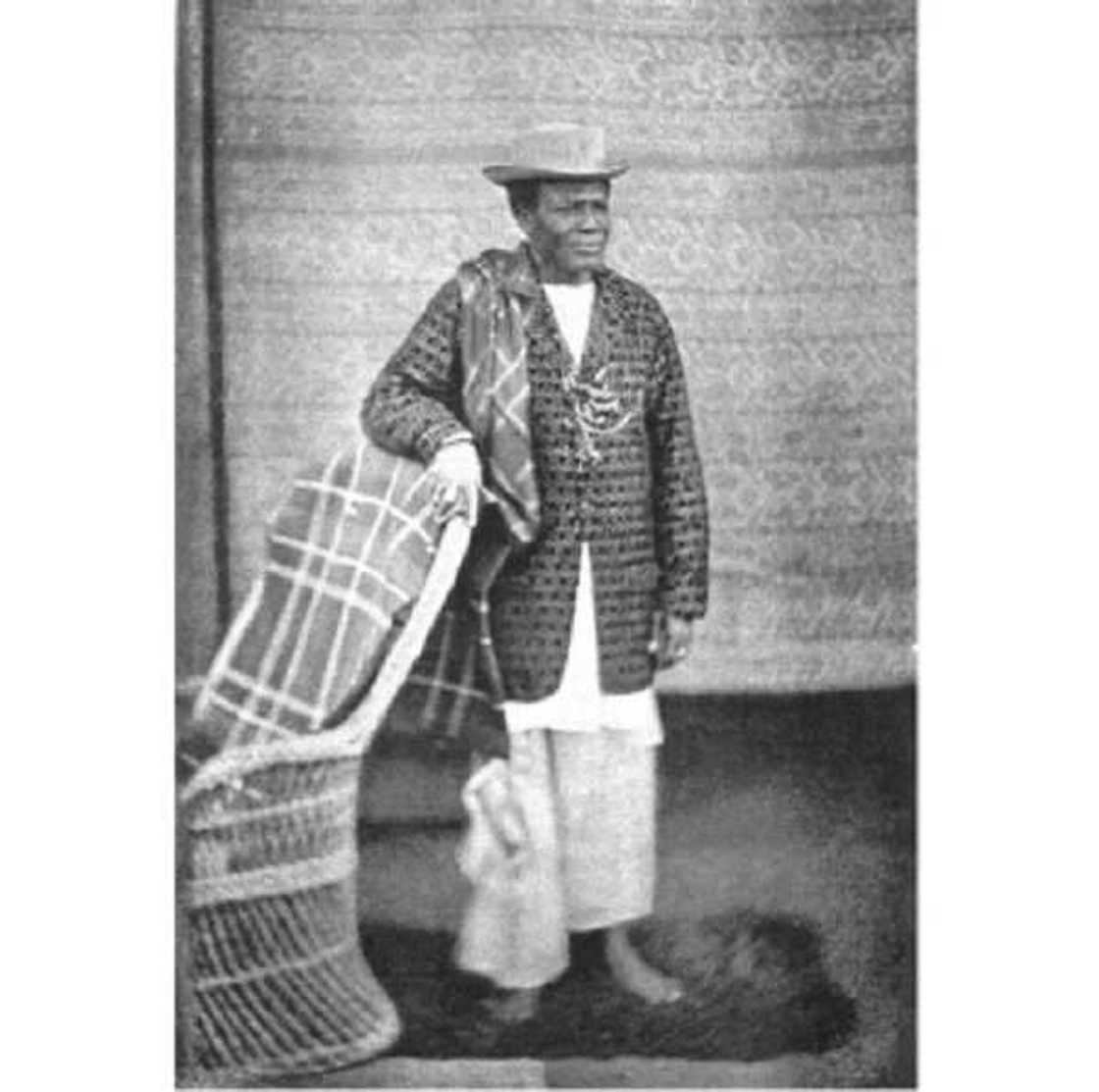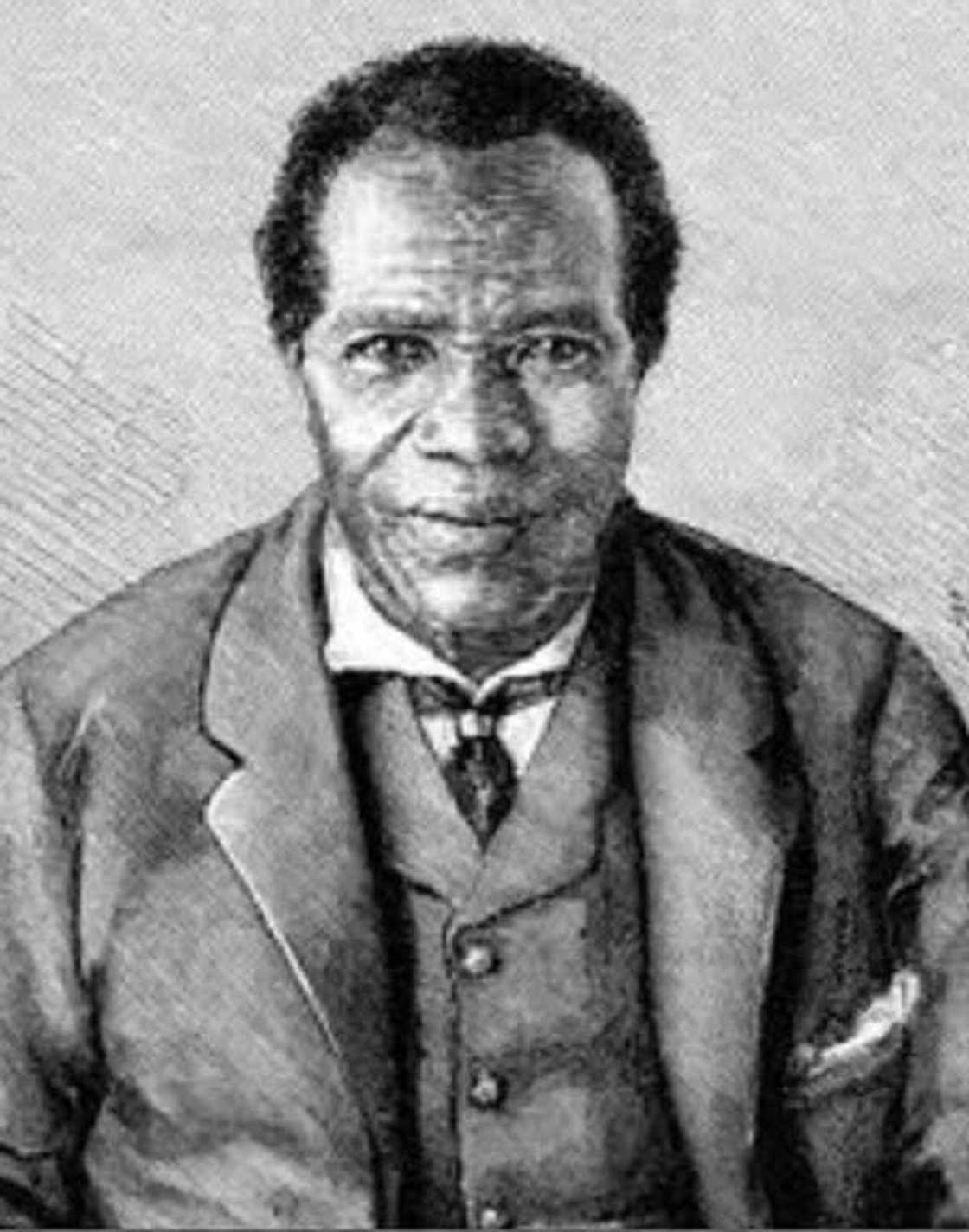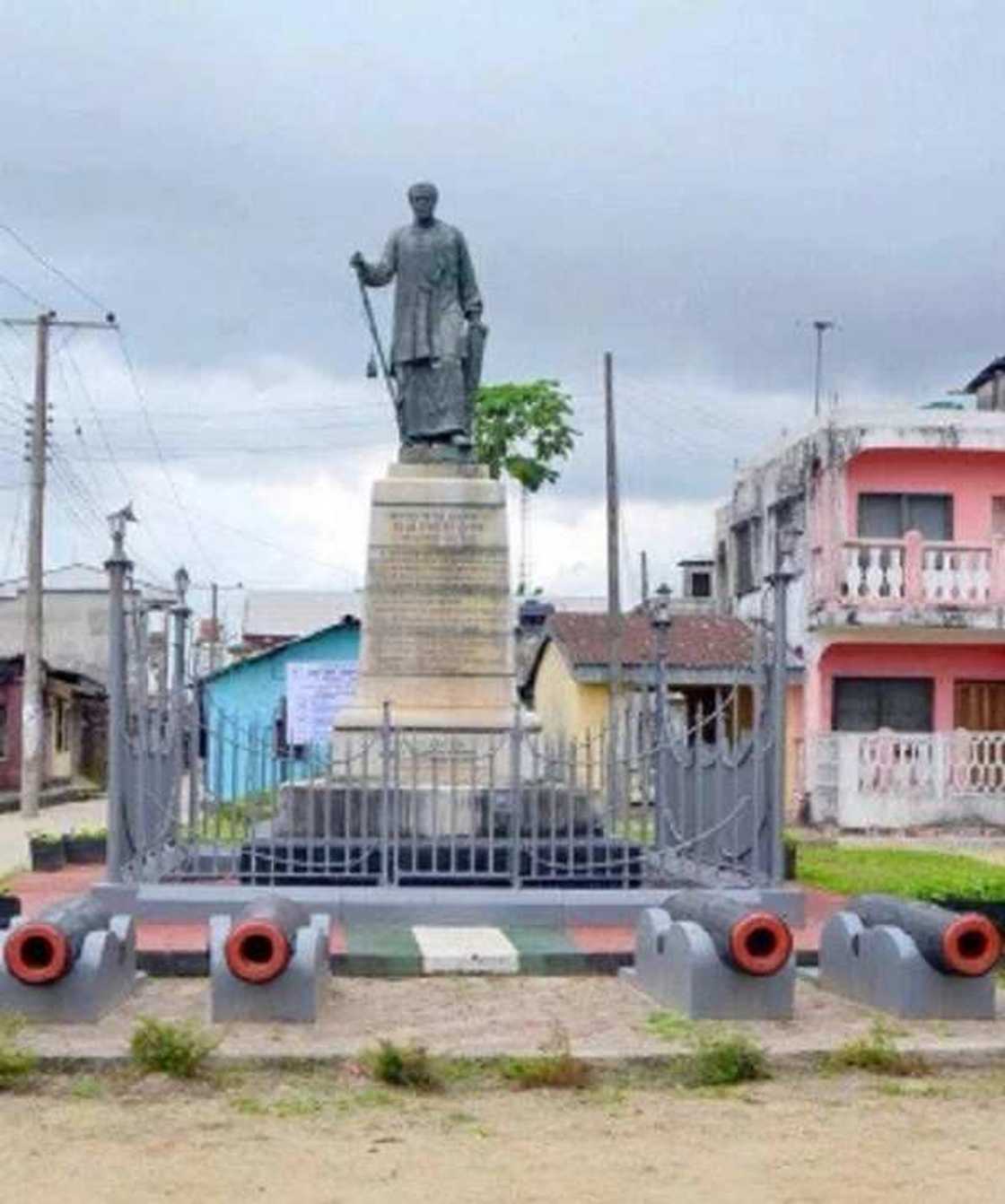King Jaja of Opobo: History of the great Nigerian hero
Songs have been sung about him, stories have been told, but not so many know the real history of Jubo Jubogha, the man who rose to become the fierce and powerful king Jaja of Opobo.
Almost every Nigerian student who passed through the Nigerian secondary school curriculum can attest that the story of King Jaja of Opobo is one of the prominent stories ever. Tales ranging from his business acumen to his defiance against the British authority has continued to live even long after his death.
King Jaja was a merchant prince and the founder of Opobo city-state in an area that is now the Rivers state of Nigeria.
Background
Born in 1821, in Umuduruoha, Amaigbo, in Igboland as Mbanaso Okwaraozurumba. He was the third son of his parents, the Okwaraozurumba. There have been different stories as to the reason he was sold into slavery to the people of Bonny at the age of 12. According to some reports, he was sold into slavery because he caught his upper teeth, which was believed to be a taboo. Other accounts say he was captured by his father's enemies and sold into slavery. One thing is certain though, Jaja came into the Bonny land as a slave and it was there he was given the name, Jubo Jubogha by his first master.
The name would later be shortened to Jaja, by the British. He was later sold to Chief Alali, the head of the Opubo Annie Pepple Royal House. At a very young age, Jaja proved top be one with great entrepreneurial skills.

From slave to royalty
Many people tend to wonder how a common slave managed to become a king in such a powerful region. Well, from the fifteenth to the eighteenth century, Bonny, like the other city-states, gained its wealth from the profits of the slave trade. Here, an individual could attain prestige and power through success in business. This meant that even a slave stood a chance at becoming a ruler if he worked hard enough. Theirs was a socio-political institution.
READ ALSO: Mary Slessor of Calabar: How the brave missionary stopped the killings of twins
Jaja was soon recognized as one of the smartest business men in the city-state. At a very young age, he exuded such a strong command for business. His intelligence in the aspect of business was soon to help him become one of the greatest leaders of the head of the Anna Pepple House. When the head of the Anna Pepple died, no one at the time wanted to fill the seat as the house seems to have incurred some debts and were owing the British a lot of money. Jaja fearlessly took up this responsibility as head and in under 2 years, paid off the debt. Under his leadership, the Anan house soon absorbed 14 out of 18 of Bonny's other trade houses. This gave the Anan house quite a strong dominance on the palm oil trade. However, this also earned them a few enemies. The Manilla Pepple House led by Oko Jumbo were said to be jealous of their strength and looked for every opportunity to start a fight to no avail as Jaja took extra measures to maintain peace. However a fire outbreak which affected the Annan Pepple house gave Oko Jumbo the opportunity to strike, forcing Jaja to break away and establish the Opobo city-state in 1869.
The Opobo city state retained most of the sociopolitical and cultural institutions of Bonny, such as the house system, and stuck steadfastly to the religion of his fathers, arguing that Christianity was as a result of societal destabilization. While recognizing the value of Western education and literacy, he rejected Christianity. He also established a secular school and employed an African-American to run it.

For 18 years, Jaja ruled the independent Opobo city-state with firmness and remarkable authority. The Opobo city-state dominated the palm oil trade and since the British were blocked from carrying out direct business with the hinter land, the Opobo city-state excersise monopoly over the business. With this, the British people were made to pay taxes and trade duties as and when due to the King Jaja. It seemed like a balanced relationship was enjoyed between the British and King Jaja. But all of these was short-lived as trouble soon ensued between the two seemingly peaceful partnership.
The fall of King Jaja
In the in the 1880s, the British imperialism began to assert itself fully. As the time went on, British officials were becoming more defiant to the indigenous authorities and British traders began direct trading with the hinterland palm oil producers. In 1884 during the Berlin Conference, the European powers declared Opobo as British territory, and the British soon moved to claim it. As expected, Jaja believing in his own authority, refused to stop taxing the British traders. This was the beginning of trouble for him. Under the guise of peace talks, Henry Hamilton Johnston, a British vice consul, invited Jaja to negotiations in 1887. Although Jaja turned down the invitation because he was suspicious of the motive, he was assured a safe return back home by Johnston and so he eventually honoured the invitation.
READ ALSO: From music lover to music legend! Career history of Afro-Juju maestro Sir Shina Peters
Unbeknownst to King Jaja, this was the last time he would ever set foot in Opobo.
Once aboard the warship Goshawk, Johnston confronted him with a deportation order or the complete destruction of Opobo. Although the choices offered were between the devil and the deep blue see, it appears King Jaja chose to be deported. He was then deported to the Accra, Ghana. On his arrival, he was immediately arrested, tried and declared guilty of actions ‘harmful’ to Britain's interest. Probably still afraid of his influence and charming ways even in captivity, King Jaja was later deported to the West Indies, at St. Vincent Island. The injustice meted out to King Jaja left a rather deep scar in the hearts of the indigenous people of Opobo and trade with the British all but seized.
According to several reports, King Jaja while in exile, carried himself in his kingly dignity. He wrote several appeals to Britain to allow him return home back to his throne and his people. After several declined appeals, he was finally allowed to return in 1891. Sadly, King Jaja never got the chance to see his homeland again as he died en route on the Island of Teneriffe, allegedly poisoned with a cup of tea.
He was buried on the Canary Islands but the strong protest of his people led to his body being quickly exhumed and then taken home to be reburied. The people of Opobo gladly paid the cost of repatriating his body to Opobo where he was mourned for two years and a ceremony was done to celebrate him as a deity.
Like a British palm oil merchant, Alexander Cowan rightly described,
"There can be no doubt Jaja was the most powerful potentate the Oil Rivers ever produced. He was just as shrewd and fore-seeing as he was powerful…He could be stern, and he was strict, but he was always just, and the form of government he set up was as near perfect as anything of its kind could be. Every man had the right of appeal, and, though in effect his own authority was never questioned, he conformed to his own rules, and governed through his council of chiefs"

Today, a magnificent statue of Jaja stands in the center of Opobo with the inscription: 'A king in title and in deed. Always just and generous.'
PAY ATTENTION: Get the Latest Nigerian News on Legit.ng News App
Get the hottest gist on Naija Uncensored Facebook Group
Inside Fela's massive house where he spent his last days on Legit.ng TV:
Source: Legit.ng

